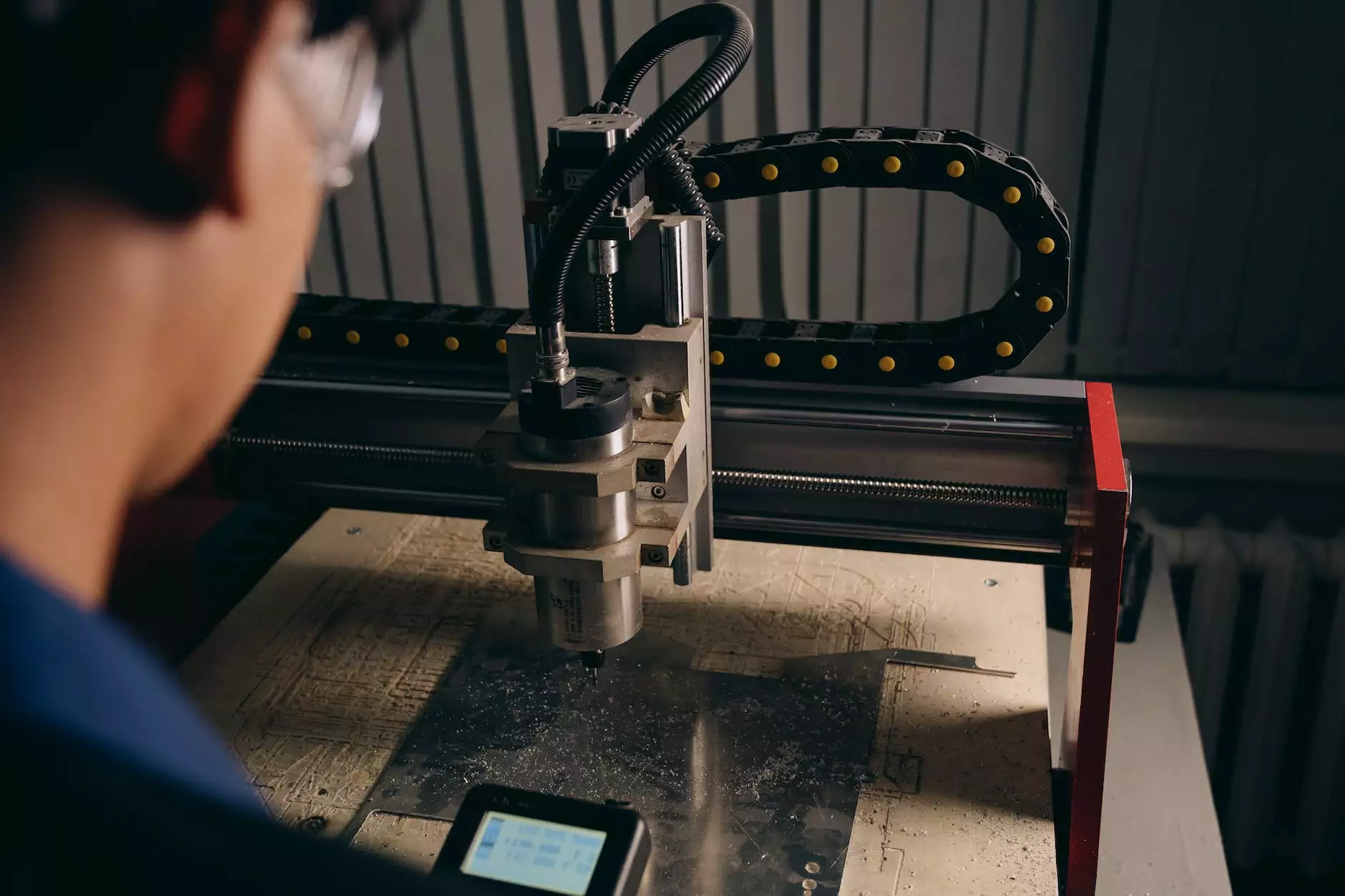Understanding CNC Machines: The Future of Manufacturing

CNC machines are revolutionizing the manufacturing landscape, transforming traditional manufacturing processes through automation and precision. In this comprehensive article, we'll delve into the intricate world of CNC machining, exploring its functionalities, benefits, and applications while equipping you with a thorough understanding of what makes CNC technology a vital component of modern manufacturing.
What is CNC Machining?
CNC machining, or Computer Numerical Control machining, refers to the process of using computer software to control machine tools. These methods ensure high precision and repeatability in manufacturing. A CNC machine can operate a variety of tools, including mills, lathes, routers, and more, based on the programmed commands.
How CNC Machines Work
At the heart of CNC machining lies the precision of automated systems powered by computers. Below is a breakdown of how these machines operate:
- Design Phase: The initial step involves creating a design through Computer-Aided Design (CAD) software. CAD one selects the shapes, dimensions, and features of the desired object.
- Programming: The next phase involves translating the CAD design into a format that the CNC machine can understand, typically through Computer-Aided Manufacturing (CAM) software. This generates the necessary G-code.
- G-code: This is the language that CNC machines understand. It instructs the machine on how to perform specific tasks such as speed, feed, and movement along the X, Y, and Z axes.
- Machining Process: Once the CNC machine is set up with the desired tools and loaded with materials, the program is executed, and the operation begins. The CNC machine reads the G-code and carries out the operations with high precision.
The Importance of G-Code in CNC Machining
G-code (often referred to as CNC machining language) plays a crucial role in ensuring the accurate manufacture of parts. Here’s how:
- Precision: G-code provides detailed instructions for movement, ensuring every cut is made exactly where it needs to be.
- Customization: It allows the programmer to customize machining operations, adapting the process according to specific needs.
- Flexibility: G-code's flexibility means that machines can be repurposed for different tasks without significant reconfiguration.
Benefits of CNC Machining
CNC machining offers a wide range of benefits that make it an indispensable part of various industries:
- High Precision: CNC machines can produce complex parts with tight tolerances that are essential for quality assurance.
- Efficiency: These machines can operate continuously, reducing production times and increasing output.
- Automation: CNC machining minimizes human error and reduces the need for manual labor, leading to enhanced safety.
- Versatility: CNC machines can handle various materials, including metals, plastics, and wood, making them suitable for a wide array of applications.
- Scalability: Whether a company needs a single prototype or thousands of identical parts, CNC machines can easily adjust to production requirements.
Applications of CNC Machining
The applications of CNC machining span across numerous industries. Some of the notable sectors include:
Aerospace Industry
The aerospace sector relies heavily on CNC machining for producing intricate components that meet strict regulatory standards. Parts such as turbine blades, structural components, and brackets are manufactured using CNC technology due to its ability to maintain precision at high tolerances.
Automotive Industry
CNC machines are pivotal in the automotive industry for manufacturing various components such as engine parts, transmission parts, and vehicle body structures. The consistency and speed of CNC machining enable the automotive sector to meet high volume production demands efficiently.
Medical Devices
In the medical field, CNC machining produces devices like surgical instruments, prosthetics, and implants where precision is crucial for patient safety and device functionality. The ability to work with biocompatible materials using CNC technology enhances the reliability of medical devices.
Electronics
From circuit boards to casing for electronic devices, CNC machining plays a vital role in shaping the electronics that drive modern technology. The detailed nature of CNC processes ensures that the components fit perfectly and function effectively.
Challenges in CNC Machining
Despite its benefits, CNC machining also presents various challenges that manufacturers need to address:
- Initial Cost: The cost of purchasing and setting up CNC machines can be significant, which can be a barrier for small businesses.
- Maintenance: Regular maintenance is crucial to ensure long-term performance. Neglecting this can lead to expensive downtimes.
- Skill Gap: Not all operators possess the necessary skills to program and run CNC machines effectively. Training is essential.
- Material Limitations: While CNC machines are versatile, some materials may require specific machining techniques or tools, which can limit options.
The Future of CNC Technology
The landscape of CNC machining is continuously evolving, spurred on by advancements in technology. Here are some trends to watch:
Integration with Robotics
As robotics technology matures, CNC machines are increasingly being integrated with robotic arms to automate material handling and enhance workflow. This synergy reduces manual labor and speeds up production cycles.
Additive Manufacturing and CNC
The combination of CNC machining with additive manufacturing (3D printing) opens new horizons for product design and production, enabling the creation of complex geometries and lightweight structures.
Machine Learning and AI
Artificial Intelligence and machine learning are poised to revolutionize CNC machining by analyzing production data to optimize processes, predict maintenance needs, and reduce waste.
Conclusion
In conclusion, CNC machining represents a cornerstone of modern manufacturing, offering precision, efficiency, and versatility across a multitude of industries. As technology continues to advance, ongoing innovations will further enhance the capacity and capability of CNC machines, ensuring they remain at the forefront of industrial automation. Understanding CNC technology equips professionals and businesses with the knowledge to leverage this powerful tool in their operations and drive forward the future of manufacturing.
For those interested in exploring further into the capabilities of CNC technology and its practical applications, consider visiting RoboCNC, a leading resource in the field.



